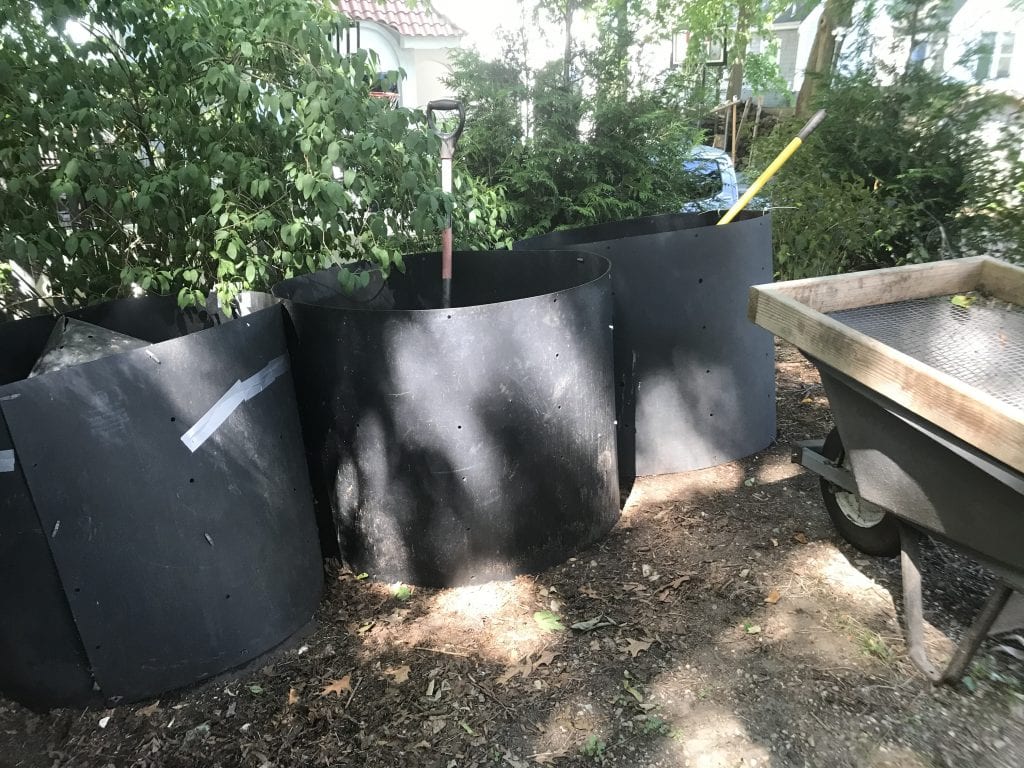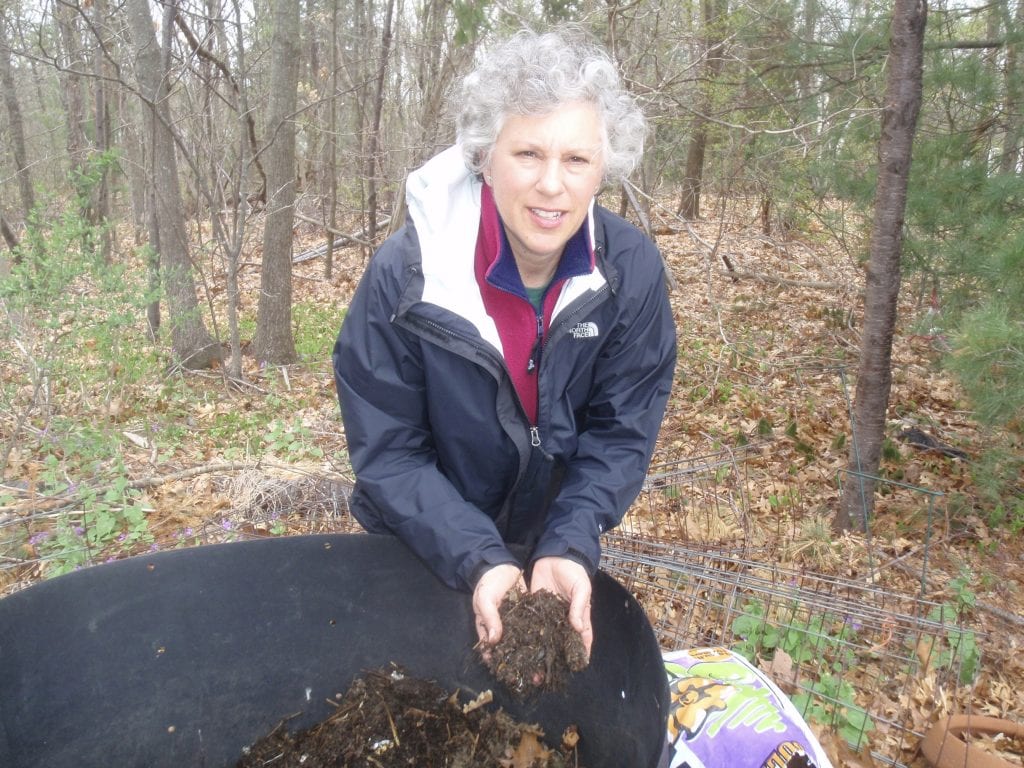
Monday, November 20, 2020 by Hingham Anchor Green Living Contributor Janice Brown McPhillips
Are you sick of raking yet? Raking hurts my back. Carrying heavy bags of leaves is hard work. But there is magic in those leaves, especially when you mix in your fruit and vegetable waste in the form of a compost pile. In my yard and in the community garden plot that I share with my friend Lynn, that magic turns into tomatoes, peppers, garlic, lettuce and more. So much great garden produce that it almost takes the pain out of raking. Even if you are not a vegetable gardener, here is why you might want to think about making a compost pile this year. During the pandemic, lots of people started vegetable gardens or embarked on baking bread so why not learn another great skill – composting your fruit and vegetable waste. If you don’t have a place in your yard for a bin, try an indoor worm composting bin. When life returns to normal after the pandemic, won’t it be fun to say that you learned a new skill or two? Think of it as a very local form of recycling, something positive you can do to help the environment and maybe even save some money.
Making compost is really not that hard. You can make a pile as simple or as fancy as you have the time and budget to do so. Whether you choose the very simple “toss it all into a pile in the back yard,” purchase a pre-made bin, or build a fancy 3 bay system, the basic recipe is this: mix 3 parts (by volume) dry brown ingredients like leaves with 1 part food waste (fruit and vegetable scraps only, no meat, dairy, bones of any kind, cat or dog waste). Mix a shovel full of soil from your yard to add decomposers about once a month or so. Make sure it’s moist because the decomposers who are doing the work need moisture. Turn the pile with a pitch fork every so often and after about 2 months, you will have finished compost. The process slows down in the winter so if you start now, don’t expect finished compost from an outdoor pile in February!
There are many free resources to help you if you are interested. One way is to tune in for a free Zoom webinar sponsored by Hingham Net Zero on Wednesday December 2nd at 7pm. You will learn approaches to shopping for and using food to reduce waste (and therefore lowering your carbon footprint resulting from wasted food) as well as some tips on starting your own backyard compost pile or apartment friendly compost system to turn coffee grounds, vegetable and fruit scraps into compost. Visit www.HinghamNetZero.org for more information.

When you separate out your compostable food waste, you will be amazed at how much less trash you generate. Here are some stark numbers: a 2019 waste characterization study done by the MA Department of Environmental Protection estimates that approximately 22% of our trash (by weight) is compostable food waste. Hingham residents disposed of over 6,600 tons of trash at our town’s Transfer Station in 2019, which means we may have disposed of as much as 1,400 tons of food waste last year. Our trash goes to a waste to energy plant located in Rochester, MA, 41 miles from here. Think of the emissions we might save if we stop trucking all that food waste out of town to be burned! People who are new to composting often ask what to do with the finished product. You don’t have to be a vegetable gardener to make and use compost. Even your favorite rose bush would love some compost or you can sprinkle a thin top coat of it on your grass. If you don’t have a garden or a lawn, you can add a handful of compost to house plants or any potted plant on your deck or balcony. Adding compost to a garden or your lawn will allow the soil to retain more moisture, prevent erosion, and make plants healthier. If you are concerned about climate change, consider this: adding compost to soil can help build soil carbon. Soil microbes build long carbon chain molecules called humus and glomalin which are stable in the soil if undisturbed. The more carbon that is sequestered in the soil, the less there is in the air! Using soil as a “carbon sink” to address climate change is a current topic of discussion among academic researchers and government policy makers around the world. Composting is something everyone can do - in a backyard bin, on your balcony in a worm composting bin. It’s a fun activity for all ages! If you haven’t already seen the new movie “Kiss the Ground” (available for free on Netflix), be sure to watch it. The scenery is lovely and the film offers a very simple explanation of how soil can sequester carbon.
This past summer, a small group of concerned citizens including me, Peter Swanson, Anne Morin and Andy Ayer met several times to strategize ways for our town to be more sustainable with respect to composting and growing vegetable gardens. We made compost house calls and helped many residents around town start composting systems. Peter and a few others grew flats of lettuce and kale to share with gardeners. Peter built 6 compost screens to share with any one in town who wants to sift their compost. If we can be of help to you setting up a garden or a compost pile, please email SustainableHingham@gmail.com.

Janice Brown McPhillips is a Hingham resident who works at Holly Hill Farm in Cohasset as a Farm and School Garden Educator, is a member of the Cleaner Greener Hingham Committee and Garden Coordinator of the Weir River Farm Community Garden.

